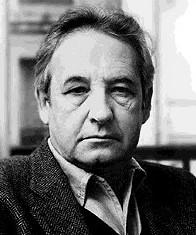|
|
|
ANDRZEJ WAJDA
Born: Suwalki, Poland, 6 March 1926.
|
 |
|
Poland's leading filmmaker and one of the major figures in postwar East European cinema. The son of a cavalry officer who was killed in WWII, he became a Resistance fighter at the age of 16. After the Liberation, he studied painting at the Kraków Academy of Fine Arts, but in 1950 he decided on a film career and enrolled at the famous Lodz film school. After graduating, in 1952, he worked as Alexander Ford's assistant on Five Boys from Barska Street. He established himself as a key figure in the new Polish cinema with his very first feature film, A Generation (1954), a penetrating study of the effects of war on the psychology of a nation's disillusioned youth. This film and the subsequent Kanal (1957) and Ashes and Diamonds (1958) form a powerful trilogy in which Wajda examines with intense sensitivity the predicament of individuals caught in events beyond their control and bitterly questions the traditional glorification of heroism in battle. Although Wajda was to prove himself a most versatile director in future years, turning out romantic films, comedies, and epics, as well as dramas, he periodically returned to themes relating to his WWII memories. In Lotna (1959) he bemoans the futility of noble traditions by depicting a tilted battle between obsolete Polish cavalry and German tanks. Ashes (1965) and Landscape After the Battle (1970), although both deal with wars of the historic past, still echo Wajda's obsession with the futility of heroism and the bitter aftermath of war. Everything for Sale (1968), Wajda's most personal and possibly most poignant film, is an introspective tribute to Zbigniew Cybulski, the young star of Wajda's trilogy, who was killed in a tragic accident in 1967. In the late 70s his films became known for their reflection of his country's political unrest. Man of Marble and Without Anaesthesia study Poland's turmoil from the viewpoint of individuals ruined by the country's widespread oppression, a bricklayer in Man of Marble, a journalist in Without Anaesthesia. His 1981 film, Man of Iron, a sequel to Man of Marble, chronicled the development of the Solidarity movement. Released just as the Solidarity strikes were taking place, it became a timely marker of Solidarity for the world, generating through its international acclaim awareness of and support for the movement. Shortly after the strikes, the government forced Wajda out of his Studio X production studio and mandated his resignation from the head of the filmmakers' association. He moved to France, where his first filmmaking effort, Danton, wa an allegory about Solidarity and revolution. By 1989 the political atmosphere in Poland had become more liberalized and he could return. He received an appointment as the artistic director of Teatr Powszechny, the official Warsaw Theatre and was elected to political office as a senator. — Ephraim Katz, The Film Encyclopedia
LINKS This page has been visited
[ home | films | directors | actors | articles | other stuff | site map ]
This page was last updated on 4 September 2000. worldcinema@yahoo.com |
|